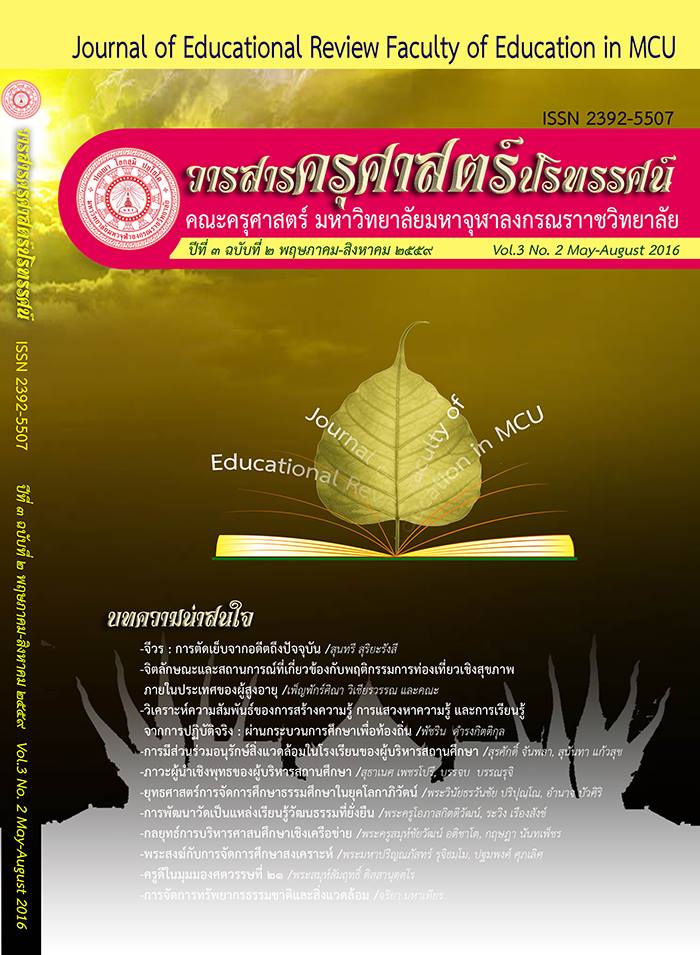Strategic Management of Religious Education in Globalization
Main Article Content
Abstract
The development of strategic management in religious education can lead to the conclusion in the strategic development as follows: In academic, 1) to develop the knowledge, morality, culture, responsibility, diligence, patience, ethics, teamwork, and generosity, 2) to develop the students' knowledge, skills, professional ethics, good health, good values, and Thainess, 3) to set up activity programs for teaching and learning. In personnel, 1) morality and ethics should be continuously promoted, 2) Buddhist based subjects should be emphasized, 3) qualified staff should be recruited. In schools budget, 1) state sectors and the private sectors should be asked to participate and provide support. In secretary management, 1) modern technology should be used in learning process, 2) to improve religious education value and quality into a standard level to make Thailand as in the center of Buddhist education.
The above process was made as a strategy as follows: A. Vision, Management aims to develop religious education in all dimensions in a systematic and standardized level for the sustainable propagation of Buddhism, B. Mission, 1) the promotion of ethics in a concrete form, 2. Cooperation between schools and the Chief of Dhamma Education, 3) to provide learning resources and programs in accordance with the learning activities and everyday living, 4) to operate network management and public relations thoroughly, 5) to set up rules, regulations and practice procedures for all institutions across the country, and 6) to have the same curriculum and teaching system across the country. C. In objectives, 1) to apply and practice in daily life, 2) to coordinate a competent and dedicated individuals to the development of religious education, 3). Educational policy and vision must be focused on ethics, 4) to promote the public in achieving information of the schools, 5) to provide financial support thoroughly, 6) to make cooperation between the Chief of Dhamma Education and other agencies, 7) promoting human development rather than material development, and 8) to encourage coordinators to work at full capacity.
Article Details
ทัศนะและความคิดเห็นที่ปรากฏในบทความในวารสารฉบับนี้ถือเป็นความรับผิดชอบของผู้เขียนบทความนั้นเพียงผู้เดียว และไม่ถือเป็นทัศนะและความรับผิดชอบของกองบรรณาธิการ
กองบรรณาธิการขอสงวนสิทธิ์ในการคัดเลือกบทความลงตีพิมพ์และจะแจ้งให้เจ้าของบทความทราบหลังจากผู้ประเมินบทความตรวจอ่านบทความแล้ว
ต้นฉบับที่ได้รับการตีพิมพ์ในวารสารครุศาสตร์ปริทรรศน์ คณะครุศาสตร์ มหาวิทยาลัยมหาจุฬาลงกรณราชวิทยาลัย ถือเป็นกรรมสิทธิ์ของคณะครุศาสตร์ มหาวิทยาลัยมหาจุฬาลงกรณราชวิทยาลัย ห้ามนำข้อความทั้งหมดหรือบางส่วนไปพิมพ์ซ้ำ เว้นเสียแต่ว่าจะได้รับอนุญาตจากมหาวิทยาลัยฯ เป็นลายลักษณ์อักษร


